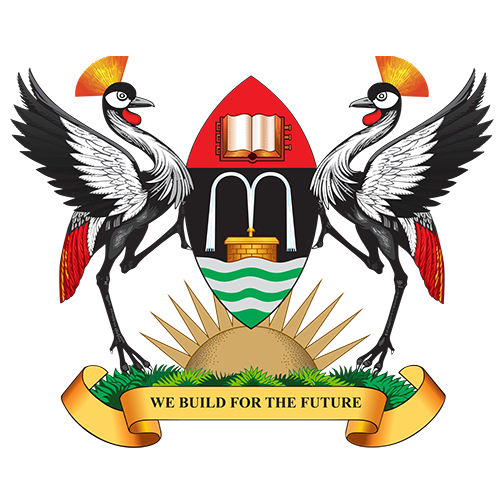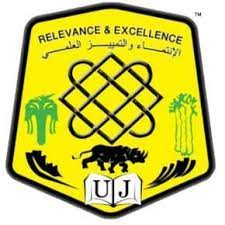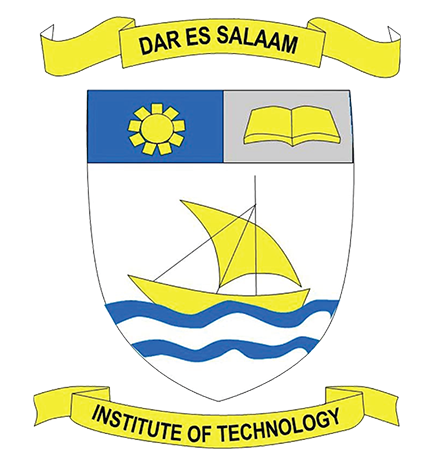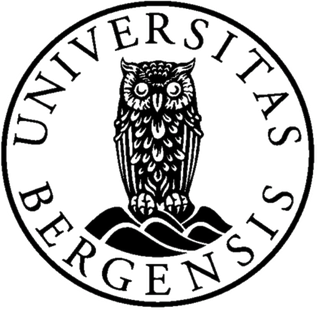The Norwegian University of Science and Technology (NTNU), in partnership with Makerere University (MAK), University of Juba (UoJ), Dar-es-salaam Institute of Technology (DIT) and University of Bergen (UoB) received a grant from NORAD, the Norwegian Agency for Development Cooperation under its NORHED II programme. The project is titled “Adaptive Environmental Monitoring Networks for East Africa (AdEMNEA).
The AdEMNEA project will design, develop, and deploy a flexible network of data gathering and monitoring stations for meteorological data as well as a wide variety of data including audio, image, and video data as well as field reports and telemetry data, integrating both existing sensing platforms and customised components for specific research areas targeting Climate Change and Natural Resources. These data points will be aggregated through resilient and energy-efficient ICT networks from the field to researchers conducting data analysis using machine learning, pattern recognition, and other artificial intelligence and analytical methods in order to support researchers in the application domain. The targeted application domains will be weather monitoring, building on the results and infrastructure established in the NORHED WIMEA-ICT project, and using this data together with the additional sensing and measurement sources to support researchers initially in the entomology domain.
Networks and Resilience(WP1)
VSensor data must be collected from both static and mobile sensors in the field and then aggregated by nodes which are energy-constrained either because they rely on batteries or on local power sources such as solar panels.
Sensors and signal processing(WP2)
These data shall be stored and integrated in digital platforms that facilitate analysis of temporal and spatial species abundance and diversity, improvement of insect management, reduction of pesticide usage and institution of conservation measures for pollinating insects
Data Analytics for Environment Monitoring services(WP3)
Development of automated information collection for insect pollinators and pests. And also for the first time combined utilization of large weather information data sets in insect pollinator conservation planning and pest control method design
Gallery

AdEMNEA Project LAUNCH
View Album
World Bee Day Celebrations - Lira District (Northern Uganda)
View Album
Monthly Seminar Photos - June 2022
View AlbumValidated weather information protocols
This work package will create a comprehensive overview over available data sources for meteorological and other relevant environmental parameters, focusing on the aspects of agricultural pest control and pollination
Weather information
This work package will create a comprehensive overview over available data sources for meteorological and other relevant environmental parameters, focusing on the aspects of agricultural pest control and pollination.
Data analytics for pest control
This project therefore aims at documenting the insect pest species across different cropping systems in Uganda, assessing their population dynamics across seasons and pest management approaches and finally generating information.
Sensor Gateway and Weather Parameters
Build up the logistic framework to allow for an efficient analysis and dissemination of information relevant for pollination and pest control
Insect Recognition and Counting from Image/Video Data
Design and implementation of image-based proximity sensing methods and tools for automatic detection and counting of key flying/crawling pollinating and pest insects.
Telemetry Tracking of Insects
Design and implementation of a light-weight long-range insect tracking system utilizing passive radio frequency identification (RFID) tags. RFID offers the advantage of rapid and simultaneous insect detection and is less disruptive on insect behavior given the small size of the tags.
Our Partners
Our Team
AdEMNEA research team and their profiles

DR. JULIANNE SANSA-OTIM
Principal InvestigatorDr. Sansa-Otim is a resourceful scientist who takes pride and initiative in going above set objectives. She is a keen researcher who finds work within collaborative partnerships exciting. She is currently a senior Lecturer in Computer Networks at Makerere University and leads the WIMEA-ICT lab where research in low-cost automatic weather stations, forecast modeling and software development for weather services are conducted. In these research efforts she works with colleagues and students from Uganda, Kenya, Tanzania, South Sudan, Rwanda, South Africa, Sweden and Norway. She has undertaken multi-disciplinary studies with colleagues from the Health, Meteorology, Agriculture and Electrical Engineering disciplines. Her research team has won research grants from a number of Development agencies, resulting into capacity building of several university departments. She has published widely in international peer reviewed journals and conferences and supervised various graduate students. Julianne received a PhD in Communications Networks from the University of Groningen, the Netherlands, after studying “Internet High-speed Data Transport Protocols”. Prior to that she had completed a MSc. in Computer Science and a BSc. in Computer Science and Mathematics from Makerere University. Her current research interests are ICT4Development, Internet-of-things for developing regions, Communications Network Protocol Design, telecommunication policies analysis, Quality of Service, Quality of Experience and Systems Security. She also serves on several boards including that of Research and Education Network for Uganda (RENU) and the UbuntuNet Alliance. Dr. Julianne is responsible for project coordination among the AdEMNEA project southern partners. She is also specifically responsible for Tasks 1.1, 4.1, 4.2, 4.3, 4.4 and 4.5 of the AdEMNEA project that entail an adapative Network Architecture, Project contracts, disbursements, procurements, monitoring and reporting as well as outputs and dissemination.

DR. MBAZINGWA ELIREHEMA MKIRAMWENI
ResearcherDr. Mbazingwa Elirehema Mkiramweni is a Lecturer in the department of Electronics and Telecommunications at the Dar es salaam Institute of Technology (DIT). His research focuses on resource and interference management and network optimization for Sensor Networks, 5G networks, and UAV-assisted cellular networks and game theory for wireless communication. Dr Mbazingwa holds a Bachelor’s degree in Information Engineering from the University of Science and Technology Beijing, a Masters in Information and Communications Engineering from the University of Science Technology Beijing and a PhD in Information and Communications engineering from Xidian University. Dr, Mbazingwa is responsible for Tasks 1.1 and 1.2 that entail Adaptive Network Architecture for Sensor Data Acquisition and Network Resilience Monitoring and Maintenance for the AdEMNEA

DR. ISAAC MUGUME
ResearcherDr. Isaac Mugume holds a PhD in Meteorology from Makerere University. Isaac is a Meteorologist with operational and research experience spanning 16years. He is presently a Lecturer in the department of Geography, Geo-informatics and Climatic Sciences, instructing courses of Weather observations, forecasting and communications. Isaac is also the Director Forecasting Services at the Uganda National Meteorological Authority (UNMA). At UNMA, Isaac leads the team in charge of short-range weather forecasts, severe weather forecasts and the marine forecasts. His Directorate is also in charge of aeronautical meteorological services as well the real-time exchange of meteorological data both nationally and internationally using the state-of-art ICT infrastructure. On this project, Isaac is instrumental in guiding on matters of weather and climate aspects, to promote the success of pest and pollinator monitoring as well as providing operational specifications for environmental monitoring.

DR. JOYCE NAKATUMBA-NABENDE
ResearcherDr. Joyce Nakatumba-Nabende is the head of the Artificial Intelligence and Data Science (AIR) Lab at Makerere University. She is a Principal Investigator on numerous projects that build AI models for data collection and disease diagnosis and language models for mining community radio data for surveillance in agriculture and health. With a Bachelor’s degree in computer science from Mbarara University of Science and Technology, a Master’s degree in Computer Information Systems from Makerere University, a PhD in computer science from Eindhoven University of Technology and a Postdoc in software engineering from Chalmers University of Technology, Dr. Joyce has been involved in teaching and training in Computer Science on undergraduate and postgraduate levels for the past 12 years. As part of her research, Dr. Joyce has developed algorithms to analyze resource behavior from event logs using process mining and contributed to the understanding of the organizational aspects of microservice based architectures, as well as ascertaining the application of machine learning for automated diagnosis of both crop and human diseases, auction design for mobile commodity markets, analysis of traffic patterns in African cities, and the use of telecoms and remote sensing data for anticipating the spread of infectious diseases.

DR. ROSE NAKASI
ResearcherDr. Rose Nakasi is a PhD Researcher at the AI and Data Science lab of Makerere University. Her research interests are in using machine learning, computer vision Data Science and GIS for solving real life challenges in developing Countries. Particularly, Dr. Rose has been involved in developing improved automated tools for microscopy diagnosis and spatial-temporal prediction of diseases like Malaria. Dr. Rose is currently a Topic Group Chair for AI Based detection of Malaria under WHO/ITU FGAI4H. Dr. Rose holds a bachelors degree in Mathematics and Computer studies from Busitema University, a Master’s degree in Computer Science from Makerere University and a PhD in Computer Science from Makerere University.

Dr. Mary Nsabagwa
Co-PIDr. Mary Nsabagwa is a Lecturer at Makerere University, Uganda, and holds a PhD in Computer Science from Makerere University, a master of engineering in Computer Science and technology from Hunan University, People’s Republic of China and a bachelor of Science in Computer Science from Makerere University, Uganda. Besides her academic duties of over 15 years, she has also been engaged in research, majoring in embedded systems and Wireless Sensor Networks. Her research interests are in embedded systems and Wireless Sensor Networks, with a focus on using Internet of Things to solve community problems. She has published over 20 papers in various fields of computer science, resulting from project implementations and collaborated with institutions across the world with individuals from various fields including electrical engineering, meteorology, veterinary medicine, public health and others. She participated in several IoT projects in areas including weather and climate, pollinator monitoring, assistive technology design and wearable device design for allergen monitoring and education among others. Besides teaching and research, she has worked as a programmer and systems analyst on several projects involving various fields such as health, education and human resource among others.

DR. ROSELINE NYONGARWIZI AKOL
ResearcherDr. Roseline Nyongarwizi Akol is a lecturer in the Department of Electrical Computer Engineering, Makerere University. With a Bachelor of Science degree in Electrical Engineering from Makerere University, a Master’s degree in Electronic Engineering from the University of Natal and PhD in Electronic Engineering from the University of KwaZulu-Natal, Dr. Akol has well over 20 years of experience in teaching and research at a university level. The quest for knowledge has kept her curios and accorded her the opportunity to carry out research at both national and international level. In teaching at a University, Dr. Akol has groomed the next generation of Engineers. She has taught and supervised both at graduate and undergraduate students. She aspires to practice in several fields of Engineering and applied science, a research collaboration between academic and industry to solve societal problems.

DR. ROSELINE NYONGARWIZI AKOL
ResearcherDr. Roseline Nyongarwizi Akol is a lecturer in the Department of Electrical Computer Engineering, Makerere University. With a Bachelor of Science degree in Electrical Engineering from Makerere University, a Master’s degree in Electronic Engineering from the University of Natal and PhD in Electronic Engineering from the University of KwaZulu-Natal, Dr. Akol has well over 20 years of experience in teaching and research at a university level. The quest for knowledge has kept her curios and accorded her the opportunity to carry out research at both national and international level. In teaching at a University, Dr. Akol has groomed the next generation of Engineers. She has taught and supervised both at graduate and undergraduate students. She aspires to practice in several fields of Engineering and applied science, a research collaboration between academic and industry to solve societal problems.

DR. ROSE NAKIBUULE
ResearcherDr. Rose Nakibuule is an Assistant lecturer in the Department of Computer Science, Makerere University. She is a dedicated and capable researcher specializing in the field of Artificial Intelligence and data science specifically, Machine learning and Computer Vision. Her research focusses on application of methods from machine learning, computer vision and predictive analytics to solve problems affecting the developing world. Through working on different research teams including graduate student supervision and collaborations between academic, industry and society, Rose aspires to become a research leader in solving both environmental and social problems that require knowledge and application of machine learning and computer vision within the developing world. Dr. Rose is currently a Principal investigator, Privacy-preserving low-cost real-time traffic monitoring-at-the-edge with computer vision, funded by Makerere University with support from the Government of Uganda. She is a member, Research, Innovations, Services and Engagement (RISE) Directorate, College of computing and information sciences (COCIS) Makerere University. and a member, Artificial Intelligence and Data Science Lab- Research group, Makerere University. Dr. Rose holds a Bachelor of Science degree in Mathematics and Computer Science from Makerere University, a Master’s degree in Scheduling and Optimization from Makerere University and a PhD in Machine Learning and Computer Vision from Makerere University.

DR. TRIPHONIA NGAILO
ResearcherDr. Triphonia Ngailo is a Lecturer in the Department of General Studies (Mathematics, Communication Skills and Entrepreneurship). A dedicated researcher specializing in the field of Statistics and Mathematics with over 12 years of demonstrated experience. With a PhD research focused on Statistics of extremes, Numerical weather and climate prediction, and Mathematical models, analysis and simulations, Dr. Triphonia has actively been involved in managerial responsibilities, teaching, mentoring and supervising students. Dr. Triphonia aspires to undertake researches on Numerical modelling and data analysis and simulations of Weather, Climate and environmental data contributing to the needs of the end users and the environment. Dr. Triphonia holds a Bachelor’s degree in Education (Mathematics) from Tumaini University, a Master’s degree in Mathematical Modelling from University of Dar es Salaam and a PhD in Mathematics from University of Dar es Salaam. Dr. Triphonia has previously collaborated on the WIMEA-ICT/NORHED project and is currently responsible for Tasks 3.2 and 3.3 of the AdEMNEA project

MS. DORA BAMPANGANA
AdministratorMs. Bampangana is a Grants Officer at the College of Computing and Information Sciences. She holds an M.Sc in Computer Science from Makerere University and she has experience in Grants Management and Research Coordination in addition administration of teaching and learning in University setting. Dora offers administrative support to AdEMNEA Project.
Contact
Location:
Level 3, Block B - College of Computing & Information Sciences (CoCIS), Makerere University, Kampala Uganda.
Email:
ademnea@cit.ac.ug
Call:
+256-772-310-038






